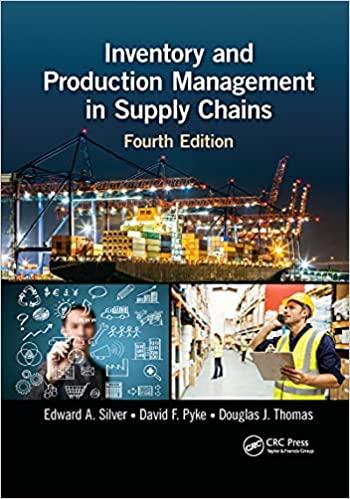Jack G. Gold, the manager of the bookstore at Lawson College, must decide on how many copies
Question:
Jack G. Gold, the manager of the bookstore at Lawson College, must decide on how many copies of a particular text to order in connection with an elective course to be offered by Professor Patrick Dunphy of the college’s Department of Philosophy. Gold decides to seek the assistance of Professor William F. Jennings of the Department of Industrial Engineering who has some familiarity with inventory models. Jennings ascertains from Gold that historically there has been considerable variance between the number of books that Dunphy says he needs for a course and the actual number purchased by the students. The particular text under consideration is supplied by a publisher that allows up to 20% returns from the bookstore, with the latter only incurring the shipping costs (i.e., the wholesale purchase price is completely refunded). To illustrate, up to 20 copies could be handled in this fashion if the original order was for 100 copies. No refund is possible on any amount beyond the 20%. Gold indicates that any copies that could not be returned would be marked down to 50% of his cost (the wholesale price), which would clear them out. Gold points out that his permitted markup on all books is 15% of his wholesale price. Suppose that, through analysis of historical records and discussions with Gold and Dunphy, Jennings is able to develop a reasonable probability distribution of total demand for the text.
a. Outline how Jennings might develop a decision rule for Gold to use in deciding on how many copies of Dunphy’s text to order.
b. Mention some complexities ignored in your analysis.? Lp852
Step by Step Answer:

Inventory And Production Management In Supply Chains
ISBN: 9781032179322
4th Edition
Authors: Edward A Silver, David F Pyke, Douglas J Thomas






